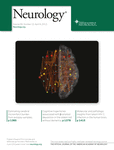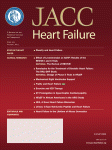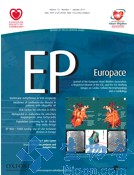Neurology:房颤患者更易在早期患痴呆
2013-06-09 晓静 译 医学论坛网
美国一项研究表明,在无临床卒中患者中,发生房颤人群比无房颤病史的人群更可能在早期达到认知损害或痴呆的阈值。论文6月5日在线发表于《神经病学》(Neurology)杂志。 研究者们对心血管健康研究进行纵向分析,共纳入基于社区的5888例年龄≥65岁的男、女性患者。受试者在基线时无房颤或卒中病史。在受试者发生临床卒中时对其进行检查。通过患者的出院诊断和每年每心电图检查确定房颤的发生。主要转归
美国一项研究表明,在无临床卒中患者中,发生房颤人群比无房颤病史的人群更可能在早期达到认知损害或痴呆的阈值。论文6月5日在线发表于《神经病学》(Neurology)杂志。
研究者们对心血管健康研究进行纵向分析,共纳入基于社区的5888例年龄≥65岁的男、女性患者。受试者在基线时无房颤或卒中病史。在受试者发生临床卒中时对其进行检查。通过患者的出院诊断和每年每心电图检查确定房颤的发生。主要转归为3MSE(Modified Mini-Mental State Examination)平均分数的降低率。
结果分析了5150例受试者,其中552(10.7%)例在平均7年随访期间发生过房颤。与之前无房颤者相比,发生房颤的受试者的平均3MSE评分下降较快。

Atrial fibrillation and cognitive decline
A longitudinal cohort study
Objective
We sought to determine whether in the absence of clinical stroke, people with atrial fibrillation experience faster cognitive decline than people without atrial fibrillation.
Methods
We conducted a longitudinal analysis in the Cardiovascular Health Study, a community-based study of 5,888 men and women aged 65 years and older, enrolled in 1989/1990 or 1992/1993. Participants did not have atrial fibrillation or a history of stroke at baseline. Participants were censored when they experienced incident clinical stroke. Incident atrial fibrillation was identified by hospital discharge diagnosis codes and annual study ECGs. The main outcome was rate of decline in mean scores on the 100-point Modified Mini-Mental State Examination (3MSE), administered annually up to 9 times.
Results
Analyses included 5,150 participants, of whom 552 (10.7%) developed incident atrial fibrillation during a mean of 7 years of follow-up. Mean 3MSE scores declined faster after incident atrial fibrillation compared with no prior atrial fibrillation. For example, the predicted 5-year decline in mean 3MSE score from age 80 to age 85 was −6.4 points (95% confidence interval [CI]: −7.0, −5.9) for participants without a history of atrial fibrillation, but was −10.3 points (95% CI: −11.8, −8.9) for participants experiencing incident atrial fibrillation at age 80, a 5-year difference of −3.9 points (95% CI: −5.3, −2.5).
Conclusions
In the absence of clinical stroke, people with incident atrial fibrillation are likely to reach thresholds of cognitive impairment or dementia at earlier ages than people with no history of atrial fibrillation.
本网站所有内容来源注明为“梅斯医学”或“MedSci原创”的文字、图片和音视频资料,版权均属于梅斯医学所有。非经授权,任何媒体、网站或个人不得转载,授权转载时须注明来源为“梅斯医学”。其它来源的文章系转载文章,或“梅斯号”自媒体发布的文章,仅系出于传递更多信息之目的,本站仅负责审核内容合规,其内容不代表本站立场,本站不负责内容的准确性和版权。如果存在侵权、或不希望被转载的媒体或个人可与我们联系,我们将立即进行删除处理。
在此留言










#Neurol#
55
#房颤患者#
61